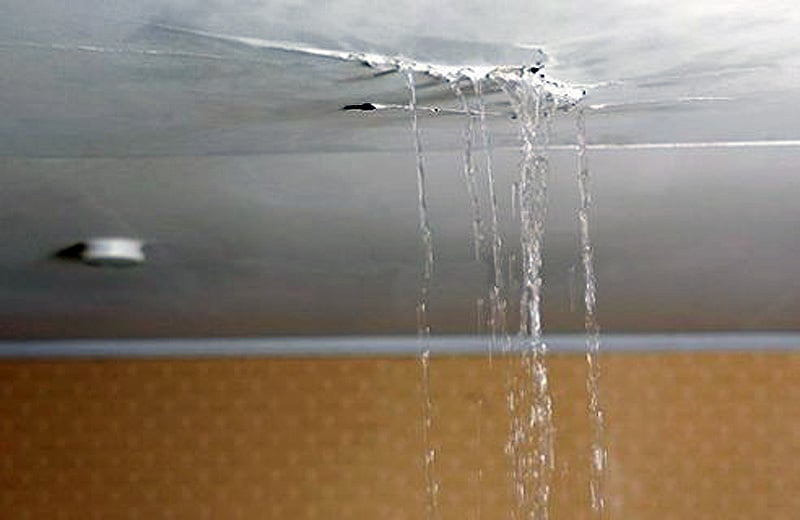The Residential Common Typical Factors of Water Leaks: Detailed Examination
The Residential Common Typical Factors of Water Leaks: Detailed Examination
Blog Article
What are your thoughts about Common Water Leaks In House?

Leakages not only trigger waste of water but can additionally trigger unneeded damage to your residence as well as advertise undesirable organic development. By looking and understanding for daily situations that trigger leaks, you can shield your home from future leaks and unneeded damage.
Instant temperature level changes.
Severe temperature adjustments in our pipes can create them to expand and also contract suddenly. This development and tightening might trigger fractures in the pipelines, especially if the temperature are listed below cold.
Rusty water systems
As time passes by, your plumbing system ages as well as rust such as corrosion might begin gnawing the pipelines. This may be the root cause of discoloration or warping on your pipes. This requires an examination with your plumber quickly. Consider replacing the pipes because they are at a greater threat of corrosion than the more recent models if our plumbing system is old.
Faulty Pipe Joints
Pipeline joints can weaken over time, resulting in water leaks. If you have noisy pipelines that make ticking or banging noises, specifically when the hot water is transformed on, your pipeline joints are most likely under a great deal of stress.
Trespassing origins
The majority of water leaks start outside the residence instead than inside it. You could discover damp patches or sinkholes in your lawn, and also that might imply that tree origins are attacking water lines creating water to permeate out.
Poor Water Connectors
At times, a leak can be caused by loose hoses and pipes that supply your appliances. Generally, moving is what triggers the loose water Connections. You could discover when it comes to a washing machine, a pipe may spring a leakage as a result of shaking throughout the spin cycle. In case of a water links leak, you may notice water running straight from the supply line or puddles around your devices.
Blocked Drains
Obstructed drains could be frustrating and inconveniencing, but they can occasionally end up triggering an overflow causing break pipes. Keep getting rid of any kind of materials that may decrease your drains pipes that could obstruct them to stay clear of such inconveniences.
All the above are reasons for leakages however not all water leaks result from plumbing leaks; some leaks could originate from roofing system leakages. All leaks must be fixed instantly to avoid water damage.
Leaks not just trigger waste of water yet can also cause unnecessary damage to your house and also promote unwanted natural growth. By recognizing and also looking for daily scenarios that create leakages, you can safeguard your house from future leakages and unnecessary damage. Today, we will look at six leakage creates that may be causing your pipes to leak.
At times, a leakage can be created by loosened tubes as well as pipes that provide your appliances. In instance of a water connections leakage, you might discover water running directly from the supply line or pools around your devices.
How To Check For Water Leak In Your Home
How To Check for Leaks
The average household's leaks can account for nearly 10,000 gallons of water wasted every year and ten percent of homes have leaks that waste 90 gallons or more per day. Common types of leaks found in the home are worn toilet flappers, dripping faucets, and other leaking valves. These types of leaks are often easy to fix, requiring only a few tools and hardware that can pay for themselves in water savings. Fixing easily corrected household water leaks can save homeowners about 10 percent on their water bills.
To check for leaks in your home, you first need to determine whether you're wasting water and then identify the source of the leak. Here are some tips for finding leaks:
Take a look at your water usage during a colder month, such as January or February. If a family of four exceeds 12,000 gallons per month, there are serious leaks.
Check your water meter before and after a two-hour period when no water is being used. If the meter changes at all, you probably have a leak.
Identify toilet leaks by placing a drop of food coloring in the toilet tank. If any color shows up in the bowl after 10 minutes, you have a leak. (Be sure to flush immediately after the experiment to avoid staining the tank.)
Examine faucet gaskets and pipe fittings for any water on the outside of the pipe to check for surface leaks.
Undetected water leaks can happen without the home or business owner even realizing. If you suspect a water leak, but not able to find the source. It is time to contact a professional water leak detection service, The Leak Doctor.
How To Find a Water Leak In Your Home
https://www.leakdoctor.com/blog/How-To-Check-For-Water-Leak-In-Your-Home_AE197.html

I hope you liked our post about Common Water Leaks In House. Thanks so much for taking the time to browse our posting. I beg you take the time to distribute this blog entry if you enjoyed it. I am grateful for your time. Kindly visit our blog back soon.
Quality service? Ring us. Report this page